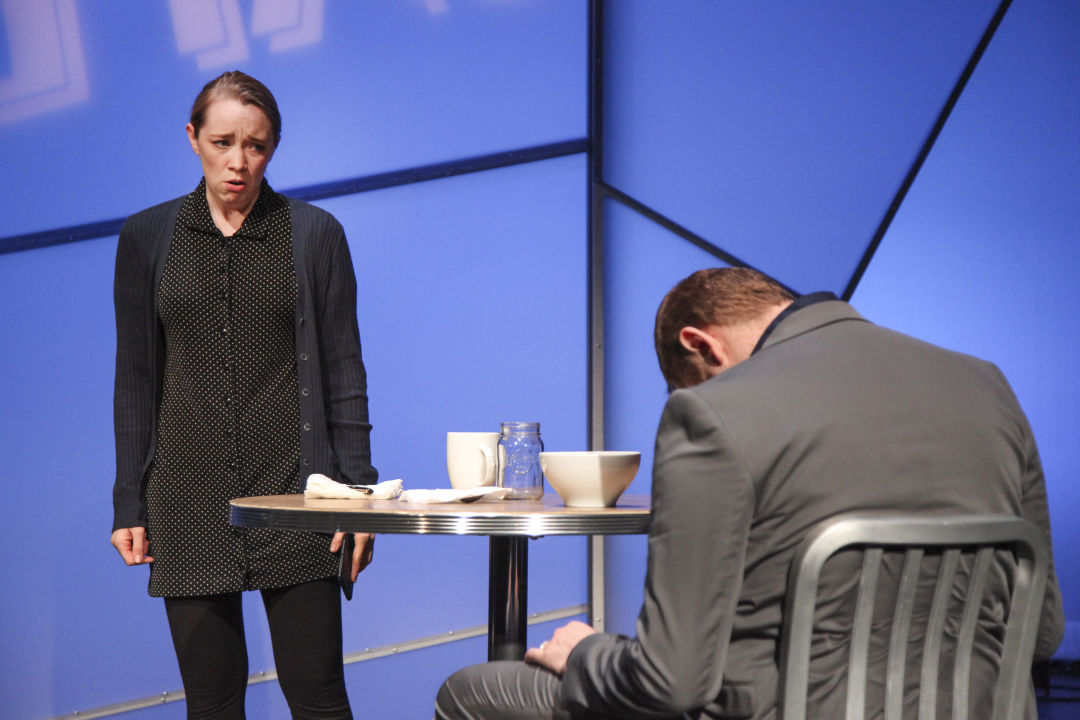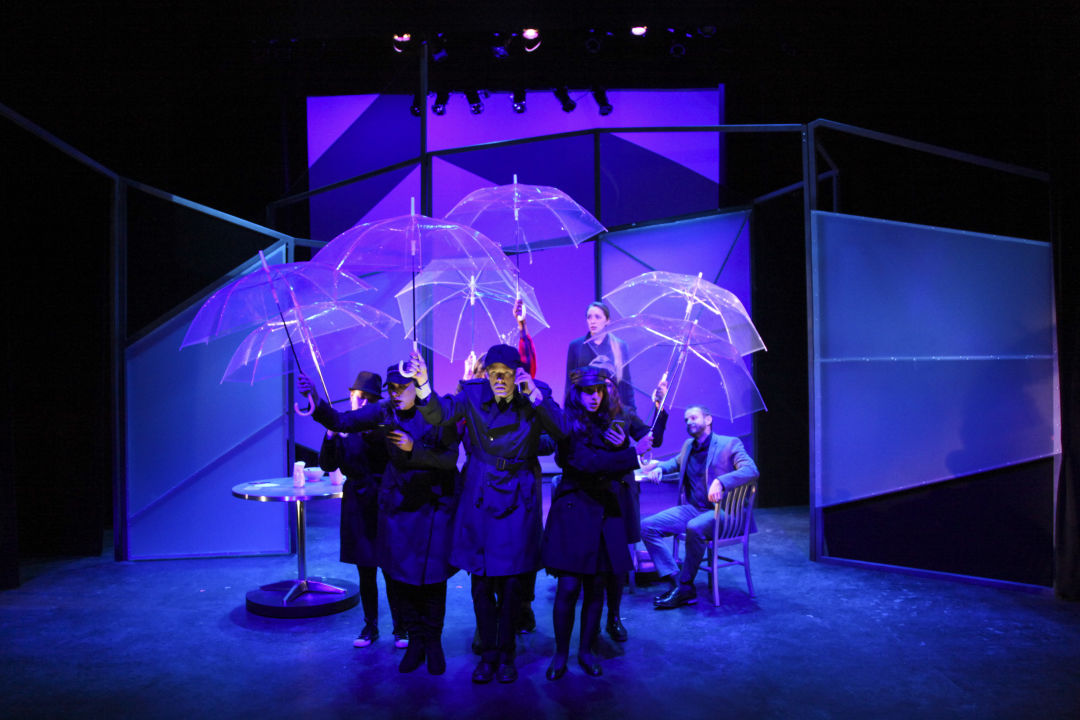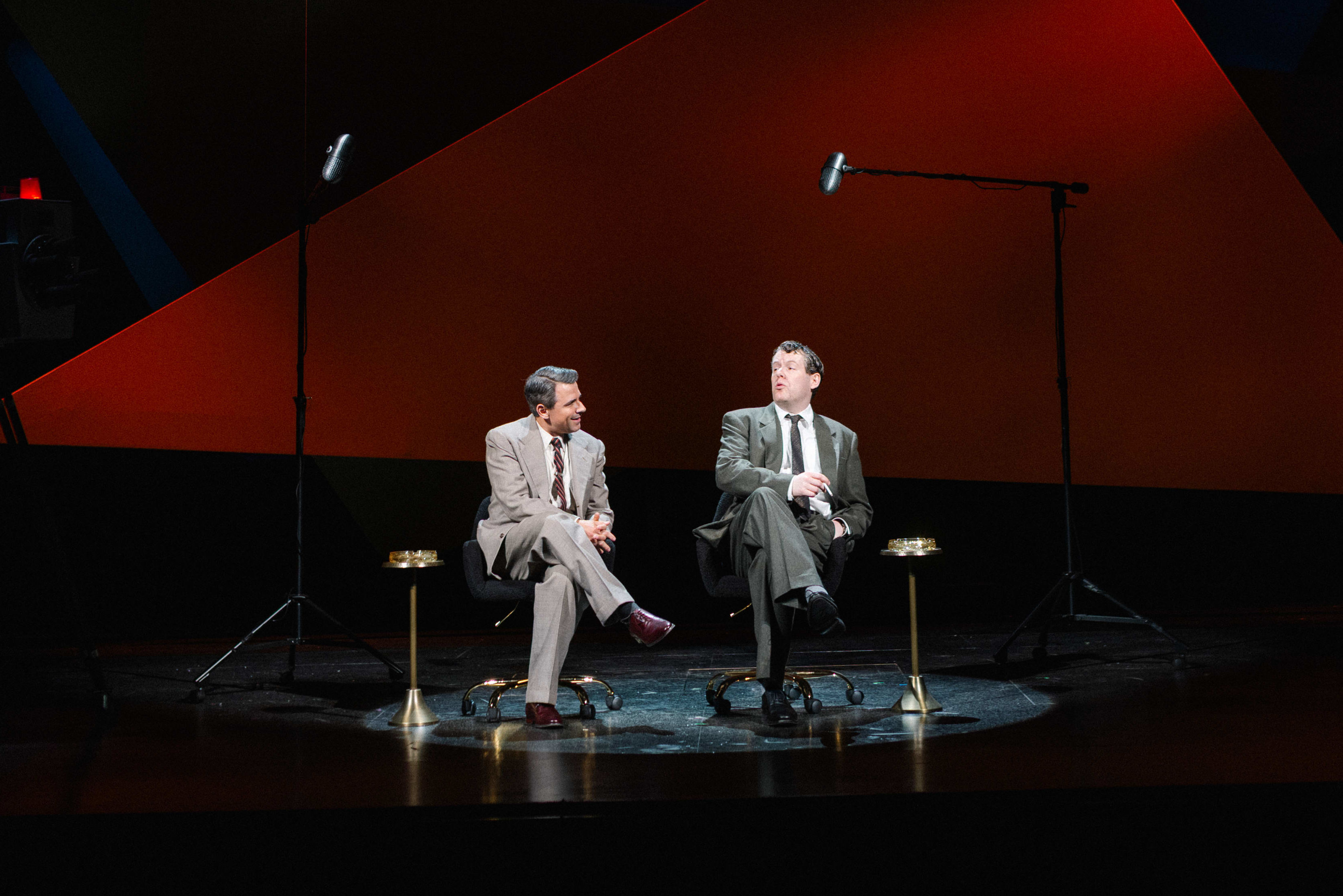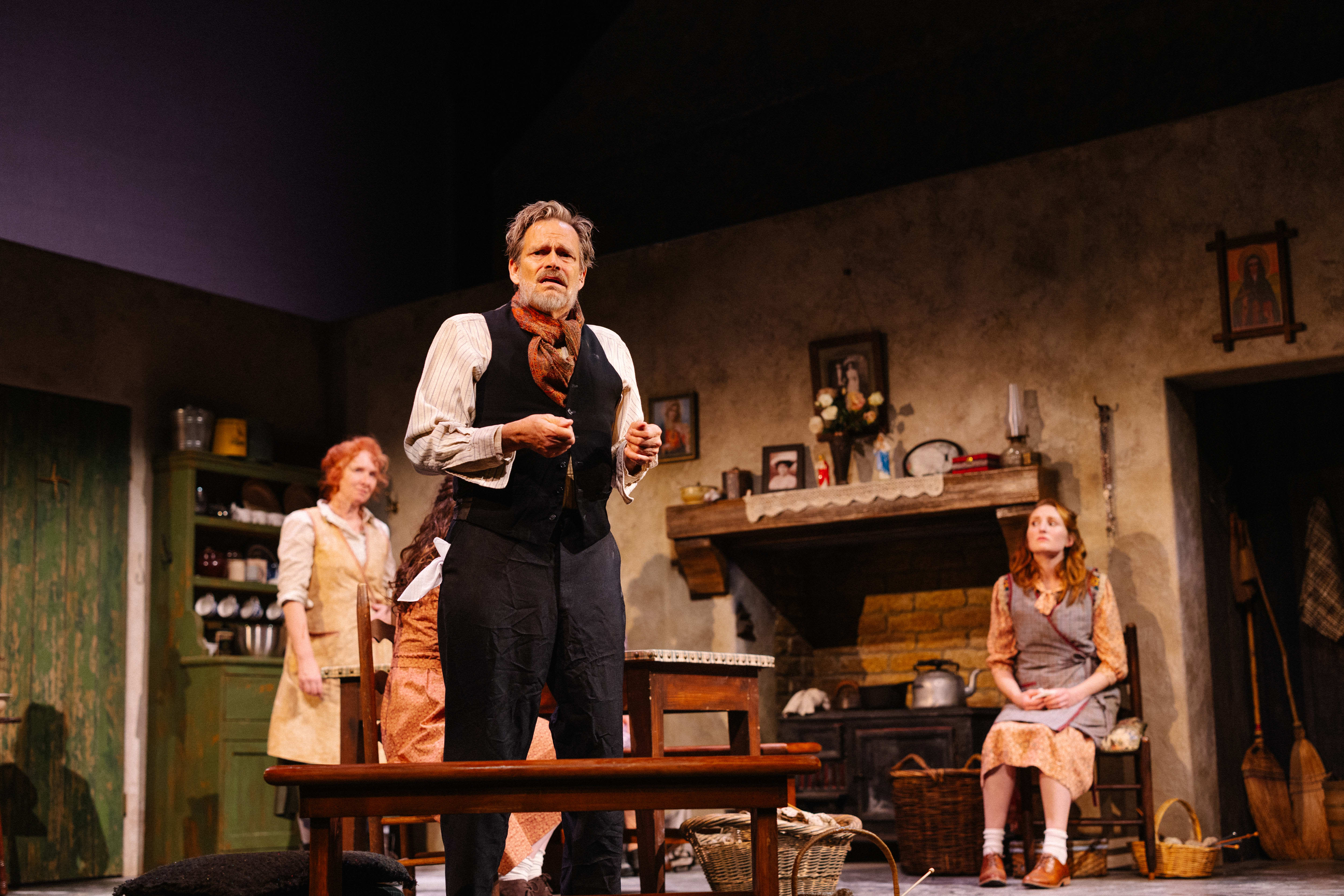Dead Man's Cell Phone: For Whom the Bell Tolls

Anna Beth Baker and Chris Hayhurst in Dead Man's Cell Phone.
Image: Frank Atura
If you’ve never seen a play by Sarah Ruhl (I confess to only having seen one before), then the FSU/Asolo Conservatory’s production of her Dead Man’s Cell Phone is bound to provide some surprises for you. But actually, even if you have seen other Ruhl works, I think you’d still be knocked a bit off balance by her style, which here blends the quirkily comic with flights of fancy on the metaphysical, the ever encroaching impact of digital technology, and the afterlife.
It all begins when the somewhat mousy Jean (Anna Beth Baker), finishing off the last of a bowl of soup at a nondescript café, becomes annoyed by the incessant ring tone of the cell phone at the next table. When she finally confronts the man (Chris Hayhurst) who refuses to answer it, she discovers—no giveaway here—that he’s not just rude, he’s dead. Shocked, she does the right thing by calling 911, but she also does the wrong thing: She appropriates his phone, and soon begins getting calls from his family and business associates she insists on answering.
That leads her to meeting Gordon’s difficult, outspoken mother (Bonita Jackson), his cool, estranged wife (Jamie Saunders), his neglected brother (Jacob Sefcak) and a forceful woman who turns out to be his mistress (Kaitlyn Weickel). We know next to nothing about Jean’s personal life, but it must be pretty empty for her to throw herself into what’s left after Gordon’s—having dinner with the family, bringing them little gifts from the café where he died, and trying to make each of them feel better about their relationships with Gordon by making up lies about how his last thoughts or words were of them.
But for the most part we go along for the ride in this play (directed by Peter Amster), because you just have no idea where it’s heading next. Jean’s journey keeps getting curiouser and curiouser, as she falls for Gordon’s brother (and vice versa) and learns more about Gordon’s mysterious and unsavory line of work. And yes, we do actually get to hear from Gordon, too, in an Act II monologue that showcases Ruhl’s often brilliant, unique writing voice.

The cast of Sarah Ruhl's Dead Man's Cell Phone.
Image: Frank Atura
Amster stages the play cleverly if simply, with a visual style that matches Ruhl’s sometimes magical, even surrealist approach. Baker and Hayhurst stand out among the cast; she for conveying the ordinariness of Jean and her growing appetite for something more, he for demonstrating Gordon’s unlikable tendencies while keeping his humanity in the end. Sefcak is likewise believable as the lonely brother, Dwight. The other Conservatory students may be less than ideally cast, according to age or type, but they get into the spirit of Ruhl’s offbeat characters. Overall, you should find yourself intrigued by Ruhl’s funny but touching exploration of some of the big questions of life.
Dead Man’s Cell Phone continues through March 8 in the Cook Theatre. For tickets, call 351-8000 or go to asolorep.org.



